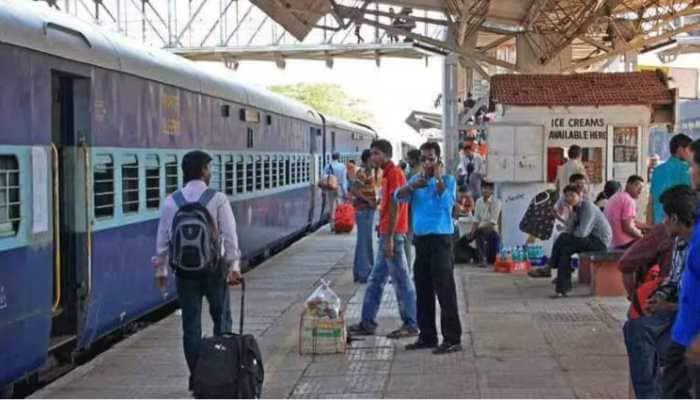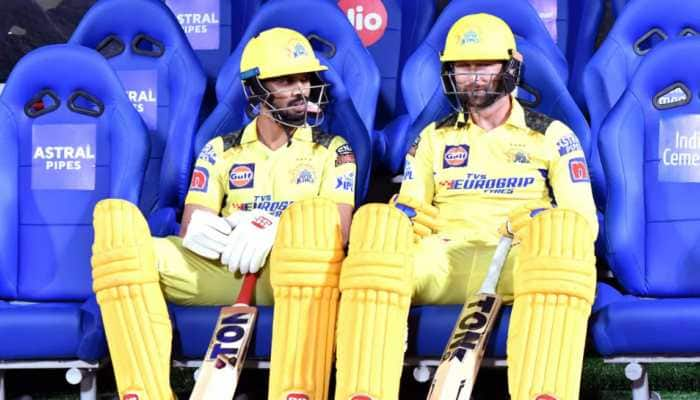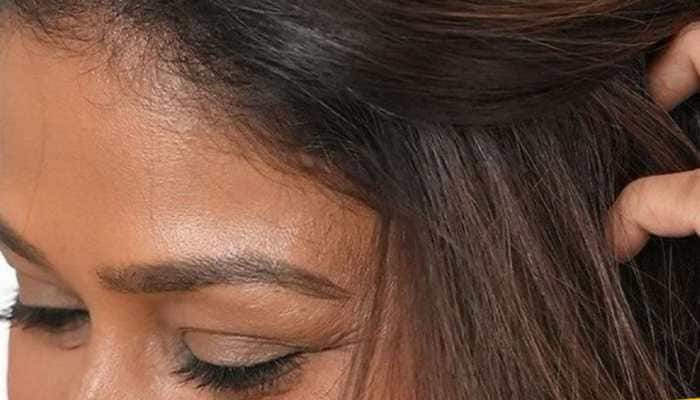Ayodhya Ram Janmabhoomi-Babri Masjid title dispute case: Day 10 hearing in Supreme Court
The Constitution Bench of the Supreme Court is hearing the Ram Janmabhumi-Babri Masjid title dispute case on a day-to-day basis. Today is the tenth day of hearing in the case.
Trending Photos
)
NEW DELHI: The Constitution Bench of the Supreme Court is hearing the Ram Janmabhumi-Babri Masjid title dispute case on a day-to-day basis. Today is the tenth day of hearing in the case. The Ayodhya case is being heard by the Constitution Bench led by Chief Justice of India Ranjan Gogoi and Justices SA Bobde, DY Chandrachud, Ashok Bhushan and Abdul Nazeer.
The hearing in the case had commenced on August 6 with arguments being made on behalf of the Nirmohi Akhara. In the following hearings, apart from the Nirmohi Akhara, submissions were also made on behalf of the deity Ram Lalla.
Below are live updates from today's hearing in the Ayodhya case:-
* Nirmohi Akhara started their debate
* Ranjit Kumar gave examples of many old decisions to prove Hindu beliefs.
* Ranjit Kumar: The Allahabad High Court has admitted in its judgment that Hindus have been worshiping at the disputed place for more than 100 years. Documents prove that worship has been done continuously there.
* Ranjit Kumar said that 14 out of 20 people had filed affidavits stating that there was a temple at the disputed site which was put before the High Court by Gopal Singh Visharad.
* Justice Bobde said that this affidavit was given when the government wanted to give the disputed land to the receiver, were these things ever proved before the magistrate? He asked Kumar from where did he get the application form to file this affidavit? Was the magistrate's order in this regard?
* Ranjit Kumar said that in 1949 the Muslim side had said that they have not been offering Namaz there since 1935, so if the land is given to Hindus then there will be no problem.
The SC asked the validity of the affidavit and asked if they were verified.
* Justice Bobde: How were these affidavits kept in the High Court records?
Ranjith Kumar: These affidavits were filed in the case. The trial was later transferred to the High Court.
* Kumar placed some affidavits filed by some Muslims before the Faizabad District Magistrate in 1950 in which everyone has said that there was a temple on the disputed land and it was demolished to build a mosque.
* Ranjit Kumar produced a copy of the total 20 affidavits filed in the Ayodhya case before the court. Some of these affidavits were filed by Muslim people who have said in their affidavits that they have no objection if the disputed land is given to Hindus, because Muslims have not offered prayers since 1935 on the disputed land, so this place is no longer important to them. Hang up.
* Senior advocate Ranjit Kumar, appearing for Gopal Singh Visharad, one of the original litigants, has commenced arguments before the bench. He claimed during the British Raj, only Friday prayers were offered by Muslims at the Babri mosque and the Hindus too used to worship the deity there. However, after the demolition of the mosque, Muslims stopped visiting the site but Hindus continued to worship Lord Ram there.
* Kumar cites the case of 80-year-old Abdul Gani who claimes that the Babri mosque was built on the birthplace of Ram Lalla. "I am making my submissions with reference to Parasaran's and Vaidyanathan's submissions that the place is itself a divine site and that I being the worshipper my right to worship, which is a civil right, should not be curtailed," Kumar tells the Constitution bench.
Day 9: As It Happened
As Kumar's argument remained inconclusive, the court adjourned the matter for further hearing on Thursday.
Senior Advocate Ranjit Kumar then started arguing for plaintiff Gopal Singh Visharad, who died in 1986. Visharad was the first to file a title suit in 1950 for a declaration that he was entitled to worship at the birthplace of Lord Ram without any obstruction and according to the rights and tenets of his religion.
Another party, Hindu Mahasabha was also not found ready for his arguments.
The court asked him to show maps or objective parameters to establish the exact location. To which, Mishra said that he will prepare notes. Thereafter, the bench told him to prepare his notes with references and then present his arguments.
He cited the Skanda Purana and the Ramayana to show the exact location of Ram Janmabhoomi. However, the bench told him that it was more interested in objective evidence than references to scriptures. The bench said that it was not disputing Hindu texts and faith, but wanted to see documentary evidence.
Mishra cited doctrines, tenets and beliefs to prove that there was a temple.
After Vaidyanathan concluded his arguments on behalf of Ram Lalla Virajman, senior advocate PN Mishra began his submissions on behalf of the Ram Janmabhoomi Punaruddhar Samiti.
The Hindu parties argued that there was no adverse possession by Hindus on the basis of Babri Masjid being erected as Hindus have always expressed their desire to worship the place.
He also claimed that the Ayodhya deity was a perpetual minor and the property of a minor cannot be dealt with, sold or alienated. He added that the Allahabad High Court had virtually handed over part of the property of the Ayodhya deity to the 'shebait', Nirmohi Akhara.
Vaidyanathan said the property cannot be transferred, sold, alienated or dealt with in any manner under Hindu law, as unlike in the Islamic law, a person in the capacity of trustee or 'shabait' cannot alienate the property.
The senior counsel cited precedents of adverse possession and ownership and said that Hindus have always expressed their desire to worship at the birthplace of Lord Ram.
He further argued that even if there was no temple and deity, the faith of the people on Ram Janmabhoomi as Lord Ram's birthplace was enough. He pointed out that putting up an idol will give the place further sanctity.
Nobody can claim adverse possession on the basis of Babri Masjid, the senior counsel said, stressing that the faith and belief of Hindus were never shaken as they continued to worship at the site identified as the birthplace of Lord Ram.
The senior advocate, appearing for Ram Lalla Virajman, submitted before the Constitution Bench headed by Chief Justice Ranjan Gogoi that if the 'Janmasthan' (birthplace) was the deity, nobody can claim ownership of the land.
CS Vaidyanathan, the counsel of Hindu parties, had on Wednesday told the Supreme Court that if there was a temple and people worshipped there as Lord Ram's birthplace, then nobody can claim ownership by adverse possession of 'Ram Janmabhoomi' (the birthplace of Lord Ram).
Stay informed on all the latest news, real-time breaking news updates, and follow all the important headlines in india news and world News on Zee News.
Live Tv







)
)
)
)
)
)
)
)
)
)
